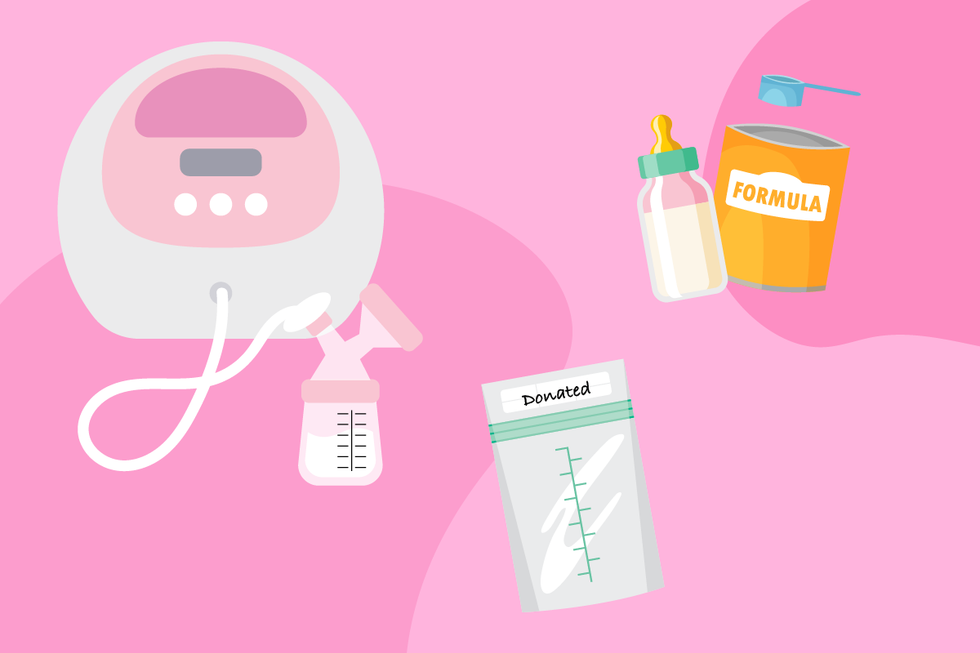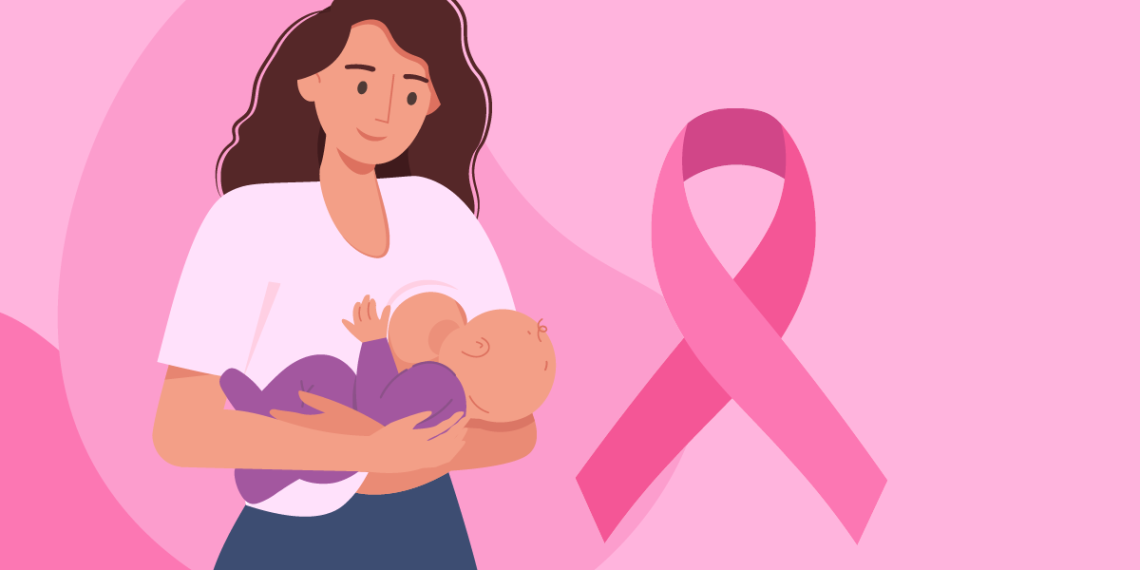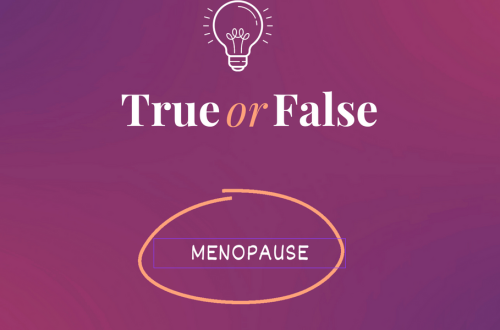Laurel Post always knew she wanted to breastfeed.
But her plan to nurse her son for at least two years was derailed after 15 months when she was diagnosed with an aggressive form of breast cancer. If she’d had time to prepare, Laurel could have pumped and stored her own milk. But she needed to start chemotherapy, followed by a double mastectomy, as soon as possible.
Just like many other women, Post had to adapt and change her plans because of breast cancer. Unlike Post’s baby, though, some infants still require the bulk of their nutrition from breast milk or formula. So, what happens if you’re breastfeeding while you’re diagnosed with cancer or if you want to breastfeed after treatment?
All is not lost.
Yes, breast cancer may alter your plans to breastfeed. But in many cases, depending on your treatment plan, you can still breastfeed, though it might be different from what you had originally envisioned.
Breastfeeding is a journey of ups and downs for many women — even without a complication like a cancer diagnosis, said Kathleen Dudley, CRNP-PC, IBCLC, a pediatric nurse practitioner and lactation consultant and member of HealthyWomen’s Women’s Health Advisory Council. But you need not feel alone. “Your medical team and lactation consultant can help you make a plan to fit your and your baby’s needs for your specific situation,” she said.
Here’s what you need to know about breastfeeding during and after a breast cancer diagnosis and treatment.
Breastfeeding after surgery without further treatment

Sometimes surgery is the only treatment needed to treat breast cancer. In that case, you may be able to pump and freeze a supply of breast milk before your surgery and resume once you heal and all the medicine is out of your system.
Anesthesia and some pain medications (like narcotics) can transfer to breast milk, so make sure to ask your healthcare team how long to wait for the medicine to clear from your body.
If you’re considering taking herbs or other medication to stimulate milk production if your milk supply is low after taking a break, make sure to first consult with your healthcare provider (HCP).
Breastfeeding during chemotherapy
Chemotherapy drugs can pass through a mother’s body and into her breast milk, so women undergoing this type of treatment are advised against breastfeeding.
If you’re breastfeeding but must wean your baby to receive chemo, you can continue to pump to keep up your milk supply. However, that milk must be discarded. Some women may be able to resume nursing after their HCP says it’s safe.
One thing you should know is that studies show that chemotherapy can negatively impact the ability to produce milk (or halt it altogether) for some women.
Breastfeeding while taking hormone-blocking drugs

Hormone-blocking drugs like tamoxifen and aromatase inhibitors are commonly used to help reduce breast cancer recurrence. They work by blocking estrogen and are usually taken for at least five years following surgery.
Dudley advised against breastfeeding while taking a hormone-blocking drug, since the drug can be passed to the baby through breast milk.
A recent trial of women who paused their hormone therapy for up to two years to become pregnant and then breastfeed suggests that some women may be able to safely take a break from hormone-blocking drugs, depending on their treatment stage and other factors.
Breastfeeding and lumpectomy
It’s often possible to breastfeed after a lumpectomy (also called a partial mastectomy), which removes a tumor and healthy tissue surrounding it. However, because nerves and milk ducts are often disrupted, the treated breast may not produce enough milk.
Breastfeeding after radiation
You can breastfeed after radiation, which is given to most women after a lumpectomy. However, radiation may make your skin tender and painful to touch, like a bad sunburn or scalding to the area, or its elasticity could be compromised, making it difficult for the baby to latch. Talk to your HCP or radiographer about how to treat an irritated breast. Options include special creams and pads, mild over-the-counter pain relievers, and hot or cold compresses.
Radiation may also make milk appear darker and thicker — but that’s not dangerous. Even so, you might be more comfortable not breastfeeding from the radiated breast. And that’s OK. One breast is often able to produce enough milk to feed a baby — even twins!
If inadequate milk supply is a concern, using a breast pump in between feedings can often help with milk flow. Keeping an eye on your infant’s weight can help you know if the baby is getting enough milk from one breast. If not, you can supplement with formula or use a milk bank, where you can obtain pasteurized donor human milk.
Breastfeeding and the fear of cancer recurrence
The fear of cancer returning is an extremely common and normal concern among survivors, and some women might fear that breastfeeding could cause their cancer to recur. However, there is no evidence that breastfeeding will cause your cancer to come back. In fact, breastfeeding lowers your risk of getting breast cancer in the first place, although there is less research about the connection between breastfeeding and a recurrence of breast cancer.
Fed is best

While it’s common knowledge that breastfeeding can benefit both baby and mother, not every woman can, or wishes to, breastfeed. For some, bottle feeding may be more convenient, or there may be a lack of support in the workplace.
Whatever your decision or circumstances, there’s no need for guilt. Some research, including this study, has found “no significant difference” in health or intellect between breastfed and formula-fed babies.
Though the memory still stings for Post, she felt fortunate that her son was old enough to receive the bulk of his nutrition from solid foods when she was forced to quit breastfeeding. “There are so many other ways to bond with your infant,” she said.
Dudley reassures all mothers in a similar circumstance with this advice: “If you have to take a break from breastfeeding during certain phases of your treatment, or you have to cut your breastfeeding journey short to ensure you receive proper care — it’s OK. Your baby is lucky to have a mom working so hard to take care of them while also making sure she cares for herself!”
This educational resource was created with support from Daiichi Sankyo and Merck.
From Your Site Articles
Related Articles Around the Web





